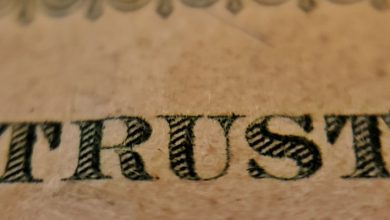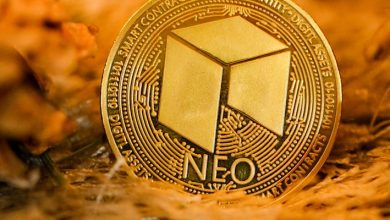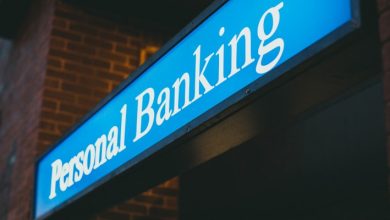Blockchain in Education: Opportunities for Verification and Security

- Understanding Blockchain Technology in Education
- Enhancing Verification Processes with Blockchain
- The Role of Blockchain in Securing Educational Records
- Exploring Opportunities for Blockchain in Academic Integrity
- Challenges and Solutions for Implementing Blockchain in Education
- Future Implications of Blockchain Technology on the Education Sector
Understanding Blockchain Technology in Education
Blockchain technology in education is revolutionizing the way academic credentials are verified and secured. This innovative technology provides a decentralized and transparent system for storing and managing educational records, ensuring the integrity and authenticity of the information. By using cryptographic techniques, blockchain creates a tamper-proof ledger that is accessible to all parties involved, including students, educational institutions, and employers.
One of the key advantages of blockchain in education is its ability to streamline the verification process. With traditional methods, verifying academic credentials can be time-consuming and prone to errors. However, blockchain technology enables instant verification of credentials, allowing employers to quickly and easily confirm the qualifications of job applicants. This not only saves time and resources but also reduces the risk of credential fraud.
Furthermore, blockchain technology enhances security by eliminating the risk of data manipulation or unauthorized access. Each educational record is securely stored on the blockchain network, ensuring that it cannot be altered or tampered with. This provides a higher level of trust and confidence in the accuracy of academic credentials, benefiting both students and institutions.
Overall, blockchain technology offers a promising solution for improving the verification and security of educational records. By leveraging the decentralized and transparent nature of blockchain, educational institutions can enhance the credibility of their credentials while providing a more efficient and secure system for verifying academic achievements. This technology has the potential to transform the education sector, making it more reliable and trustworthy for all stakeholders involved.
Enhancing Verification Processes with Blockchain
One of the key advantages of implementing blockchain technology in education is the enhancement of verification processes. By utilizing blockchain, educational institutions can ensure the security and integrity of academic records, certificates, and credentials.
Blockchain provides a decentralized and tamper-proof system for storing and verifying data, making it virtually impossible for records to be falsified or manipulated. This increased level of security not only benefits students and graduates by providing them with a secure and reliable way to prove their qualifications but also helps institutions in combating issues such as credential fraud and degree mills.
Moreover, blockchain can streamline the verification process by allowing instant access to verified credentials, eliminating the need for time-consuming manual verification procedures. This not only saves time and resources for educational institutions but also enhances the overall efficiency of the verification process.
In addition to improving verification processes, blockchain technology also enhances the transparency and trustworthiness of academic records. With blockchain, all transactions and changes to records are securely recorded and time-stamped, providing a transparent and auditable trail of the credential’s journey.
Overall, the implementation of blockchain in education offers a unique opportunity to revolutionize the verification processes, ensuring the security, integrity, and trustworthiness of academic credentials for students, graduates, and institutions alike.
The Role of Blockchain in Securing Educational Records
Blockchain technology plays a crucial role in securing educational records, offering a decentralized and tamper-proof system for storing and verifying academic credentials. By leveraging blockchain, educational institutions can ensure the integrity and authenticity of student data, including degrees, certifications, and transcripts.
One of the key benefits of using blockchain for educational records is the elimination of intermediaries, such as third-party verification services or credential evaluators. This not only streamlines the verification process but also reduces the risk of fraud or misrepresentation.
Furthermore, blockchain enables students to have greater control over their own academic records, allowing them to securely share their credentials with potential employers, universities, or other relevant parties. This increases transparency and trust in the credentialing process.
Overall, the integration of blockchain in securing educational records presents a significant opportunity to enhance the security, efficiency, and reliability of credential verification in the education sector.
Exploring Opportunities for Blockchain in Academic Integrity
In exploring opportunities for the integration of blockchain technology in academic integrity, we can identify various potential use cases that could enhance the verification and security of educational credentials. One key application of blockchain in this context is the creation of tamper-proof digital records that can securely store information about academic achievements, such as degrees, certificates, and transcripts.
By leveraging blockchain technology, educational institutions can ensure that student records are securely stored and easily verifiable by relevant parties, such as employers or other academic institutions. This can help prevent fraud and misrepresentation of qualifications, ultimately enhancing trust in the education system.
Furthermore, blockchain can also be utilized to streamline the process of verifying academic credentials, reducing the administrative burden on institutions and improving the overall efficiency of the credential verification process. This can lead to faster and more reliable verification of qualifications, benefiting both students and stakeholders in the education sector.
Overall, the integration of blockchain technology in academic integrity holds great promise for enhancing the security and transparency of educational credentials. By exploring these opportunities and implementing blockchain solutions, we can create a more trustworthy and efficient system for verifying academic qualifications.
Challenges and Solutions for Implementing Blockchain in Education
Implementing blockchain in education comes with its own set of challenges, but there are solutions that can help overcome these obstacles. One of the main challenges is the lack of technical expertise among educators and administrators. To address this, training programs can be implemented to educate staff on how to effectively use blockchain technology in an educational setting.
Another challenge is the cost associated with implementing blockchain systems. This can be mitigated by leveraging open-source blockchain platforms, which can reduce the financial burden on educational institutions. Additionally, forming partnerships with blockchain companies can provide access to resources and expertise at a lower cost.
Ensuring data privacy and security is also a concern when implementing blockchain in education. By utilizing encryption and permissioned blockchains, institutions can maintain the integrity of student records while protecting sensitive information from unauthorized access.
One of the key solutions to these challenges is collaboration. By working together with industry experts, educators, and government agencies, educational institutions can develop best practices for implementing blockchain technology. This collaborative approach can help address technical, financial, and security issues while maximizing the benefits of blockchain in education.
Future Implications of Blockchain Technology on the Education Sector
Looking ahead, the future implications of blockchain technology on the education sector are vast and promising. As this innovative technology continues to evolve and mature, it is expected to revolutionize the way academic credentials are verified, shared, and stored.
One of the key benefits of blockchain in education is its ability to provide a secure and tamper-proof system for storing academic records. By leveraging blockchain technology, educational institutions can ensure the integrity and authenticity of student transcripts, diplomas, and certificates.
Additionally, blockchain can streamline the process of verifying academic credentials, making it easier for employers, universities, and other stakeholders to access and confirm the qualifications of individuals. This increased transparency and efficiency can help reduce fraud and improve trust in the education system.
Moreover, blockchain technology has the potential to enable new models of learning and credentialing, such as micro-credentials and digital badges. These alternative forms of certification can provide more personalized and flexible pathways for individuals to showcase their skills and knowledge.
Overall, the adoption of blockchain technology in education holds great promise for enhancing the security, transparency, and accessibility of academic credentials. As this technology continues to mature, it is expected to reshape the landscape of the education sector and empower individuals to take control of their own learning and professional development.



